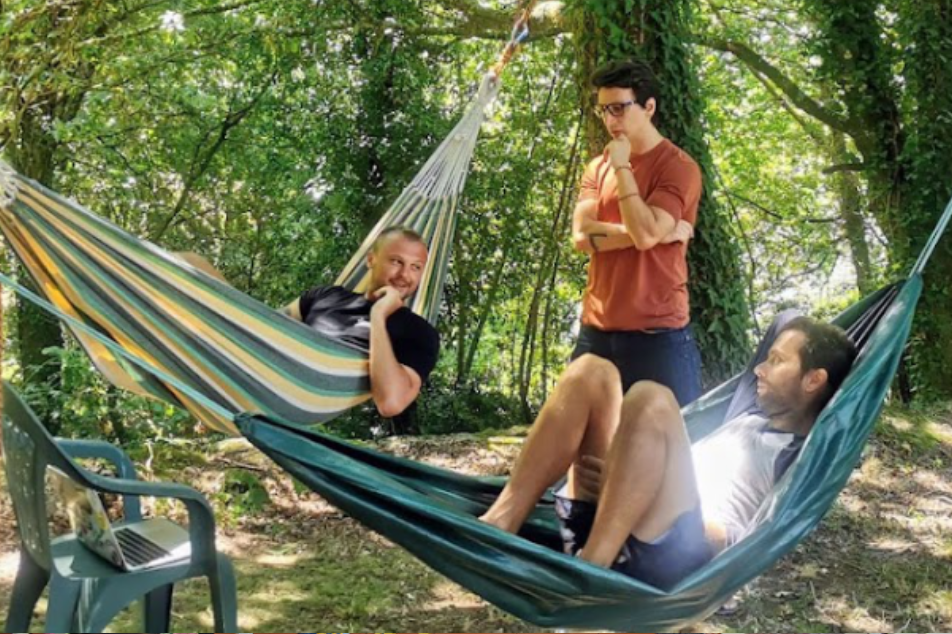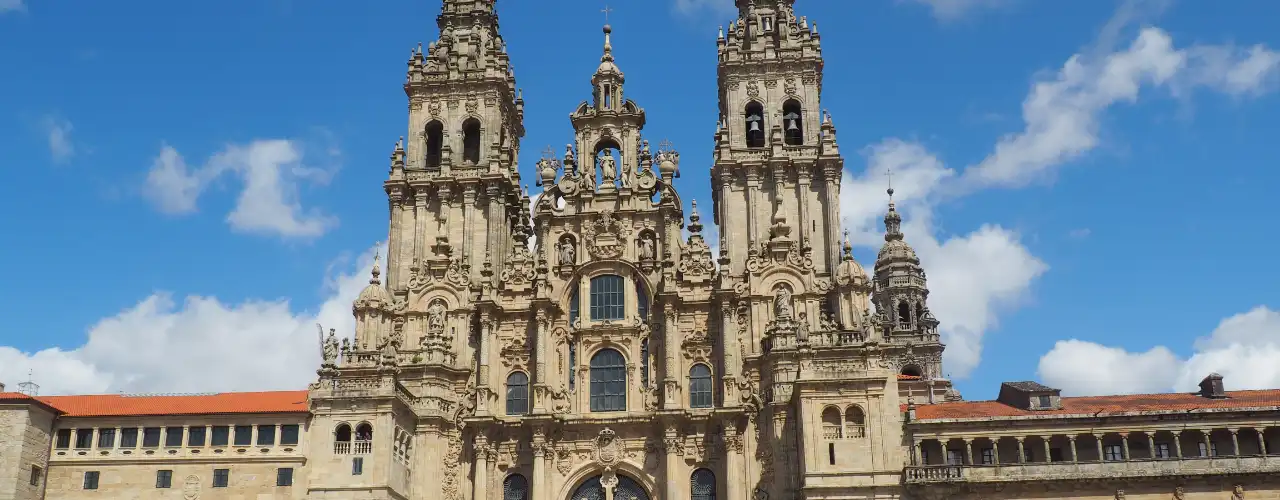Coliving Portugal
Find your Coliving Portugal
Having a coliving experience in Portugal
A Coliving stay in Portugal means coming into contact with a multitude of leisure activities and a cultural heritage that harmonizes tradition and modernity.
Portugal is located in the extreme southwest of Europe and forms part, together with Spain, of the Iberian Peninsula. Portuguese geography is divided into 5 peninsular regions – Porto and Norte, Portugal Centro, Lisbon, Alentejo, Algarve – and the archipelagos of Madeira and Azores in the Atlantic Ocean.
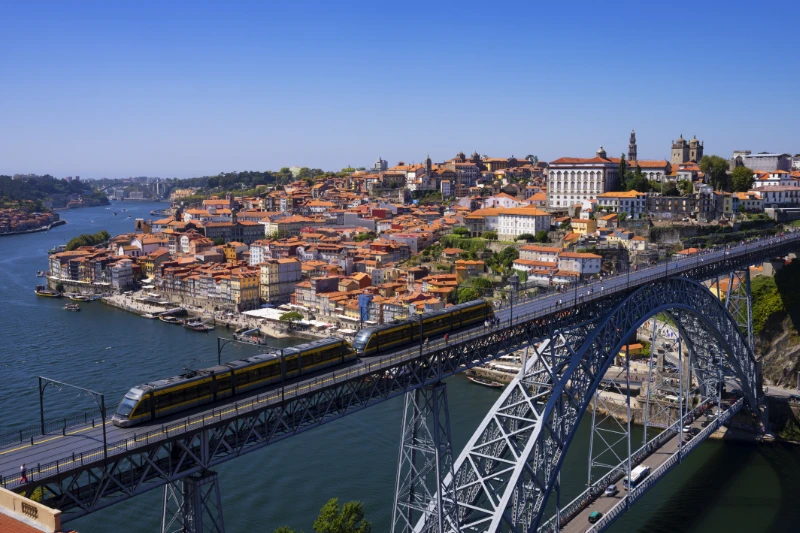
Portugal has a population of approximately 10 million inhabitants, with the highest density rates in and around Lisbon, the capital. Porto, located in the north, is the second largest city in the country. In general, the towns located on the coast are more densely populated than those in the interior.
Getting to know the Portuguese language in depth or getting in touch with it through cultural exchange activities and language cafés is one of the possibilities offered by the Coliving programs in Portugal. It is the fifth most widely spoken language in the world and is spoken by almost 250 million people worldwide.
Portugal’s climate varies considerably from one region to another, subject mainly to the influence of the relief and the proximity to the sea. In the northern and central areas of Portugal, winters tend to be colder with moderate temperatures compared to the rest of Europe. Summers tend to be hot and dry. On the coast the heat is moderated by the influence of the sea.
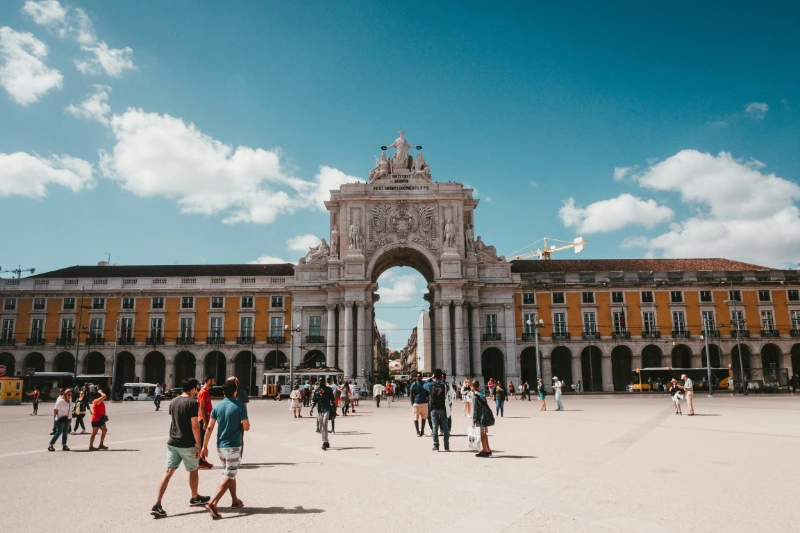
Best places to do a coliving in Portugal
The whole Portuguese territory offers multiple options when it comes to choosing the Coliving accommodation that best suits the tastes and needs of each remote worker. From the hustle and bustle of big cities such as Lisbon or Porto to rural areas characterized by a calmer pace such as the Aldeias do Xisto or locations such as Piódão, Belmonte or Sortelha.

The Serra da Estrela Natural Park is the largest protected area in Portugal. In the north, the Gerês National Park and areas such as the Sintra-Cascais Natural Park with its incredible vertical cliffs and its important architectural heritage, the Sierras de Aire and Candeeiros Park or the Arrábida Park, characterized by its rich plant and animal life, stand out. All of them are places to approach to discover their landscapes without haste, choosing a hiking route or practicing activities with more adrenaline.
The islands of Azores and Madeira, with their characteristic and unique landscapes and natural spaces, are ideal destinations for those digital workers who enjoy practicing adventure sports. From rafting or canoeing to climbing or paragliding, these regions offer numerous options to enjoy pleasant temperatures throughout the year.
The Azores archipelago is made up of nine islands and Madeira is made up of the islands of Madeira and Porto Santo and the Natural Reserve Areas of Desertas and Selvagens. Both archipelagos are located at a maximum of 2 hours from the Portuguese capital, Lisbon.
Coliving types in Portugal
Rural Coliving
These accommodations are located in areas that make it possible to disconnect from the hustle and bustle of the city, experiencing a slower pace of life. The Coliving are located in rural areas, many of them located between mountains and protected areas, where the connection developed with the environment and the community are the main points of the stay.
Rural coliving enables a connection with the local community in which it is located and with which it comes into contact through environmental actions and artistic, cultural and creative workshops and events.
The Aldeias do Xisto, located in the Central region of Portugal and which extend through the Lousã and Açor mountain ranges, up to the Serra da Estrela, stand out. Also the so-called Aldeias Históricas, located along the border.
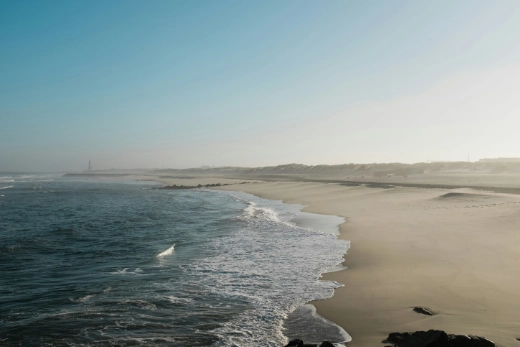
Coast Coliving
With more than 850 kilometers, the Portuguese coast is a gigantic beach ideal for water sports. Choosing a coastal area as a destination for a Coliving stay in Portugal is an ideal choice if you are looking to enjoy modalities such as surfing, windsurfing or kitesurfing.
There is a wide variety of locations, either in Aveiro, Viana do Castelo, Nazaré, Carcavelos or Ericeira, or to the south, on the Alentejo coast and in the Sagres area, and even in the Azores and Madeira.
Urban Coliving
Planning a Coliving stay in an accommodation located in an urban area is an opportunity to enjoy a very complete and diverse cultural agenda.
With beaches, natural parks, monumental and leisure areas and cultural tours for all tastes, the Lisbon region is a suitable option for a stay in this type of Coliving. Both north and south of the capital, it is easy to move around to discover the wide variety of landscapes and heritage of the country.
Coliving and portuguese culture

Art and culture are an indispensable part of Coliving stays. Manueline art, azulejos and fado are authentic symbols of the Portuguese, as well as a contribution to World Heritage. Although with common characteristics and cultural manifestations, each region of Portugal has its own material heritage and local customs that shape its identity and that of its inhabitants.
The country’s gastronomy offers a very rich and varied variety of dishes, being one of the points to take into consideration when deciding to live a Coliving experience in Portugal.
Portuguese cuisine is strongly influenced by its coastline, highlighting the offer of fish and seafood prepared in different ways. As for meats and fruits and vegetables, the offer of each region stands out for its quality and flavor, many of them being products with Protected Designation of Origin (PDO). Among the many other products on offer, typical Portuguese desserts such as custard tarts and wines such as Port wine represent the country in places far beyond its borders.
Legal and practical aspects of Coliving in Portugal
When planning a Coliving stay in Portugal, it is essential to know the requirements for entering the country. As a remote worker in Portugal it is important to have information about the documentation required for this type of stay, as well as its particularities.
Digital Nomad Visa in Portugal
It is possible to obtain a residence permit and a temporary stay visa to work remotely for an entity based outside the national territory.
In order to obtain this type of visa, remote workers planning a medium-long term Coliving stay in Portugal must prove the employment relationship by means of a contract, as well as a document proving fiscal residence. In addition, they must also provide proof of average monthly income in the last 3 months.
The digital nomad visa is granted for a period of less than one year and is valid for multiple entries into the national territory. This type of visa is required only if the period of stay is longer than the tourist visa, which in most cases allows a stay of up to 180 days.

